Killing Intellectuals. European Intellectual Elites Under German Occupation, 1939-1945 | conference - Instytut Pileckiego
conference
07.05.2017 (Sun) 09:00
Killing Intellectuals. European Intellectual Elites Under German Occupation, 1939-1945 | conference
The conference was held in Austria on 7-9 May 2017. It proved an opportunity for a comparative look at the fates of the intelligentsia and intellectual elites in Europe under German occupation. The discussion was attended by scholars representing different
The policy followed by Nazi Germany with respect to intellectual elites in occupied Europe is a topic worthy of separate consideration. Crimes against the Polish intelligentsia were a sine qua non condition for the colonization and Germanization of the occupied territories. Amongst the victims were politicians, professors, teachers, lawyers, physicians, judges, and clergymen. The perpetrators targeted persons of education, who enjoyed high social status.
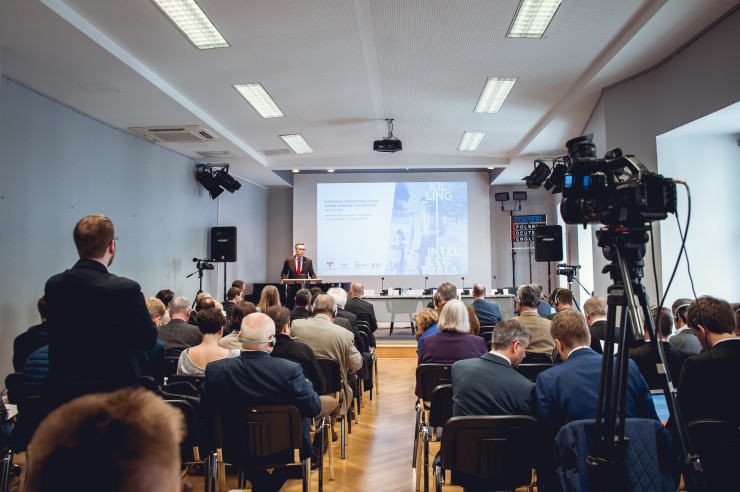
German crimes against the Polish intelligentsia – the systematic “killing of intellectuals” referred to in the title of our Conference – are an important part of the Polish experience of the Second World War. Further, this constitutes clear proof that the Polish case forms an element which simply must be taken into consideration in any broader view of German occupation policy in Europe.
An analysis of the similarities and differences between the wartime histories of each of the subjugated nations and states will allow us to arrive at an understanding of the German concept of the new Nazi European Order, both as regards its ideological assumptions and implementation – stated Dr Wojciech Kozłowski.
The Conference was organized to coincide with the 72nd anniversary of the liberation of the Mauthausen-Gusen concentration camp complex. KL Gusen is a symbol of the suffering of the Polish intelligentsia under German occupation. Over a period of five years the Germans transported some 71,000 people to the notorious facility. More than one half of them perished. Poles – citizens of the II Republic – constituted the majority amongst both prisoners and victims of the camp.
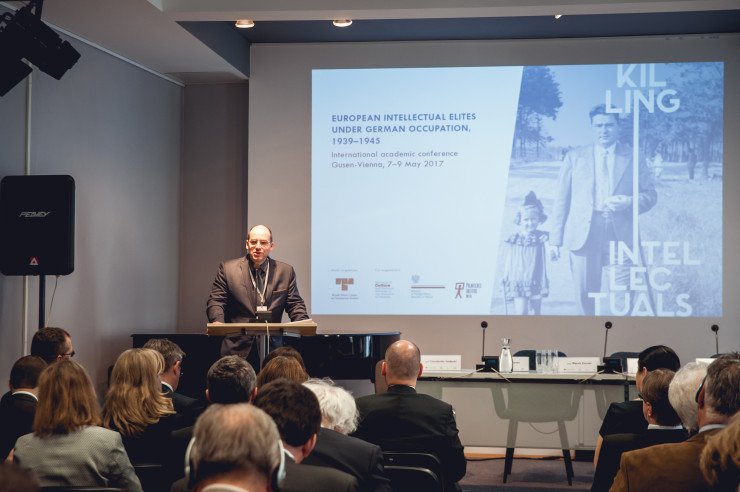
Those murdered in KL Gusen include the politician and journalist Henryk Sławik, named Righteous Among the Nations, the painter Stanisław Filipkiewicz, the writer Jerzy Ostrowski, and the young composer Jan Sztwiertnia. A great many residents of Warsaw, deported from the city after the fall of the Uprising, were also imprisoned at the camp. The Center for Totalitarian Studies was motivated to organize the Conference by a firm desire to honor the memory of all the camp’s inmates and victims.
KL Gusen is a symbol of the many decades during which the crimes committed against intellectual elites were oblivionized, resulting in the near-complete obliteration of the camp’s material remains. Today, through the efforts of the local community and the Polish government, acting in close cooperation with the Austrian authorities, this negative trend is slowly being reversed – Wojciech Kozłowski explained.
The Conference was preceded by a gala concert held in St. Georgen an der Gusen – the Austrian township in which Gusen concentration camp was located. On 7 May the Camerata Silesia choir and the String Quartet of the National Symphony Orchestra of the Polish Radio in Katowice performed pieces written by the most famous Polish composers of the 20th century (Karol Szymanowski, Szymon Laks, Krzysztof Penderecki, Wojciech Kilar, Henryk Mikołaj Górecki), and also songs composed by the prisoners of KL Gusen themselves (“The Prisoner’s Dream”, “Living Stones” and “For us the Sun Never Sets”).
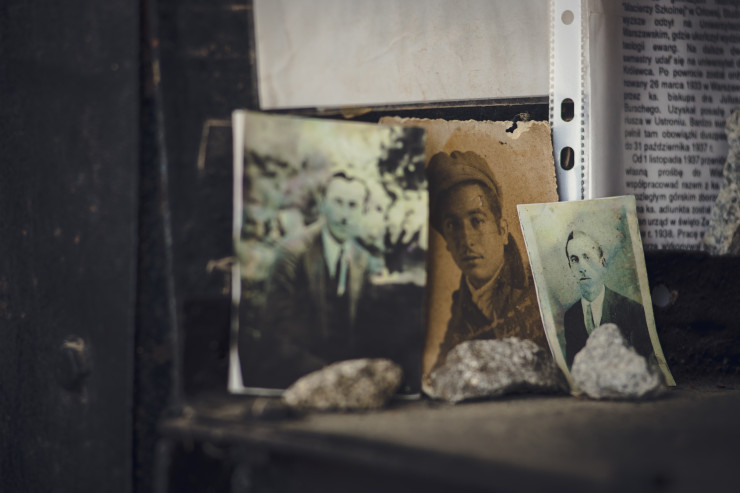
The concert was attended by former inmates and their families, representatives of the diplomatic corps, and many local residents. The Deputy Minister of Culture, Prof. Magdalena Gawin, bestowed the “Meritorious for Polish Culture” award on three representatives of the local community who continue to foster the memory of KL Gusen: Martha Gammer (a teacher at the local school and the chairwoman of a society commemorating the camp’s tragic history), Rudolf Haunschmied (the author of numerous publications devoted to the site), and the mayor of St. Georgen an der Gusen, Erich Wahl.
The academic part of the Conference commenced on 8 May at the Polish Institute in Vienna. The keynote lecture, devoted to the issue of the origins of the Polish intelligentsia and its history up to the Second World War, was delivered by Professor Maciej Janowski from the Institute of History of the Polish Academy of Sciences. A significant moment was the presentation of a project authored by Marek Zając, a journalist and the Secretary of the International Auschwitz Council, and Dariusz Pawłoś, the Chairman of the Board of the Foundation for Polish-German Reconciliation, for commemorating KL Gusen by the establishment of the Henryk Sławik European Center of Education.
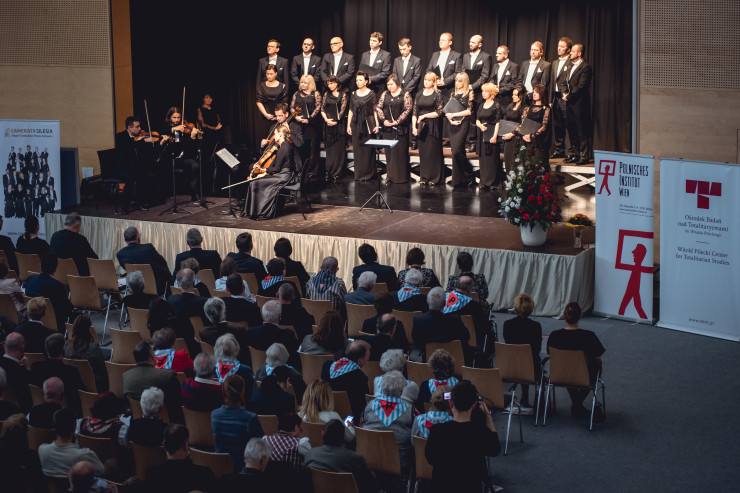
The proposal to apply global standards governing the functioning of places of memory with respect to former Nazi German concentration camps, for which the experiences of the Auschwitz-Birkenau Museum constitute the point of reference, met with considerable interest on the part of researchers and the local community of St. Georgen an der Gusen, which was represented among others by Rudolf Haunschmied.
The Conference was accompanied by a screening of Grzegorz Łubczyk’s film entitled “Living on the Edge. Henryk Sławik–József Antall”. This was preceded by a discussion with the director concerning the life and activities of Henryk Sławik, who was murdered by the Germans in KL Gusen on 23 August 1944.
The two days of discussions at the seat of the Polish Institute in Vienna were attended by eminent historians of the 20th century from Poland, Germany, Austria, Serbia, Romania and Holland. Also present at the event were journalists and Austrian social activists, who continue to work tirelessly to preserve Gusen concentration camp in the common memory.
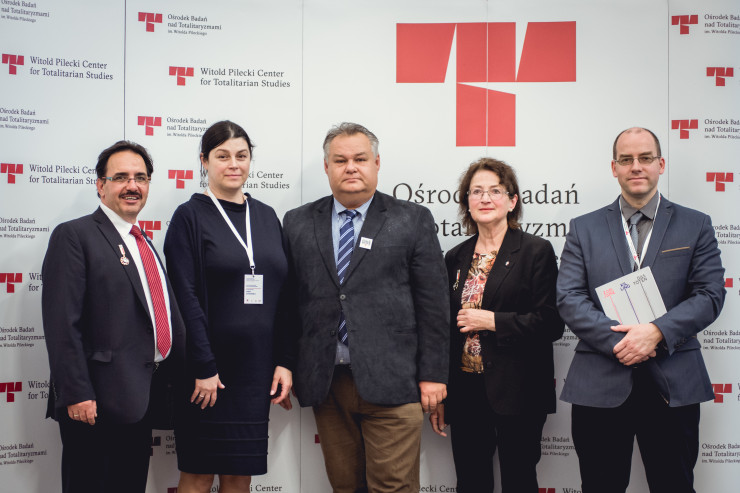
See also
- Oppositional Engagement of Women in Authoritarian and Totalitarian Systems of the 20th Century: Poland in a Comparative European Perspective (1919–1989)
conference
Oppositional Engagement of Women in Authoritarian and Totalitarian Systems of the 20th Century: Poland in a Comparative European Perspective (1919–1989)
We invite scholars to participate in an international academic conference devoted to various forms of activity undertaken by women who engaged in opposition and dissent under authoritarian and totalitarian rule in the 20th century.
- CALL FOR PAPERS: Oppositional Engagement of Women in Authoritarian and Totalitarian Systems of the 20th Century: Poland in a Comparative European Perspective (1919–1989)
conference
CALL FOR PAPERS: Oppositional Engagement of Women in Authoritarian and Totalitarian Systems of the 20th Century: Poland in a Comparative European Perspective (1919–1989)
We invite scholars to participate in an international academic conference devoted to various forms of activity undertaken by women who engaged in opposition and dissent under authoritarian and totalitarian rule in the 20th century.
- CALL FOR PAPERS: International academic conference „Soviet Central Asia as a Totalitarian Testing Ground” | Deadline for submissions: April 30
conference
CALL FOR PAPERS: International academic conference „Soviet Central Asia as a Totalitarian Testing Ground” | Deadline for submissions: April 30
The Pilecki Institute in Warsaw invites scholars to take part in the international academic conference “Soviet Central Asia as a Totalitarian Testing Ground”, to be held on 15–17 June 2026 at the Institute’s headquarters in Warsaw.